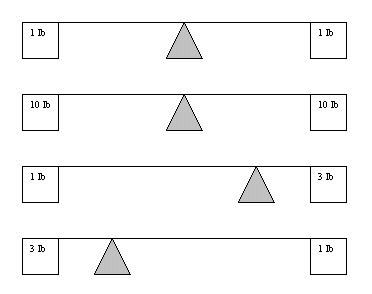
One frequently hears the word "balance" used in reference to nutrition, nutrients, and other much more complex concepts, such as human consciousness, ecosystems, economies, etc. One reads about "balanced" nutrition, "balanced" nutrients, "balanced" proteins, "balanced" amino acids, "balanced" diets, etc. Most certainly, one would not want to become "unbalanced" or eat an "unbalanced" diet, right?
But do any of these popular concepts have any meaning? The etymology of the word is traced back to the Latin bilanx, having two dishes or scales; the common old-fashioned pan balance used to compare two weights. The correct use of the word balance, therefore, rests on 6 fundamental conditions.
1. that two, and only two, entities are compared
2. that "balance" is achieved only if the two items counteract each other perfectly
3. that the system is in static equilibrium; i.e. no motion
4. that the two items being compared move in the same direction (e.g. gravity); i.e. they are identical in fundamental properties or behavior
5. that a bar and pivot are used such that the intrinsic behaviors involved counteract each other
6. that different magnitudes can balance each other depending only on the position of the pivot; i.e. the concept is non-quantitative.
Any weight can balance any other, regardless of their magnitudes. Thus, the following systems are in balance:

Now, how do various nutrients fit into the concept of balance using the same 6 criteria outlined above?
1. two entities: there are dozens of nutrients. Fail
2. counteract each other: does protein counteract fat or carbohydrate? No. Fail
3. are nutritional needs in static equilibrium? No. Fail
4. are all nutrients identical in fundamental properties or behavior? No. Fail
5. in nutrition, is there a functional equivalent to the bar and pivot such that the intrinsic behaviors of any two nutrients counteract each other? No. Fail
6. can different amounts of nutrients counteract each other, regardless of amount? No. Fail
With a little bit of rational analysis we can readily understand that the very specific concept of balance simply does not apply to complex, dynamic systems such as nutrition, biochemistry, human consciousness, or ecosystems. Thus, when one reads or hears the word "balance" used in reference to nutrition, or any system more complex that two weights and a stick, it would be best to totally discount the source of these incredibly false statements, for if the source can not even grasp this 8th grade science concept it is certain that the same source is totally ignorant of the complex biochemistry that must be understood to support any meaningful claims about nutrition. Thus, the word balance can be another simple, yet quite effective, quack detector.